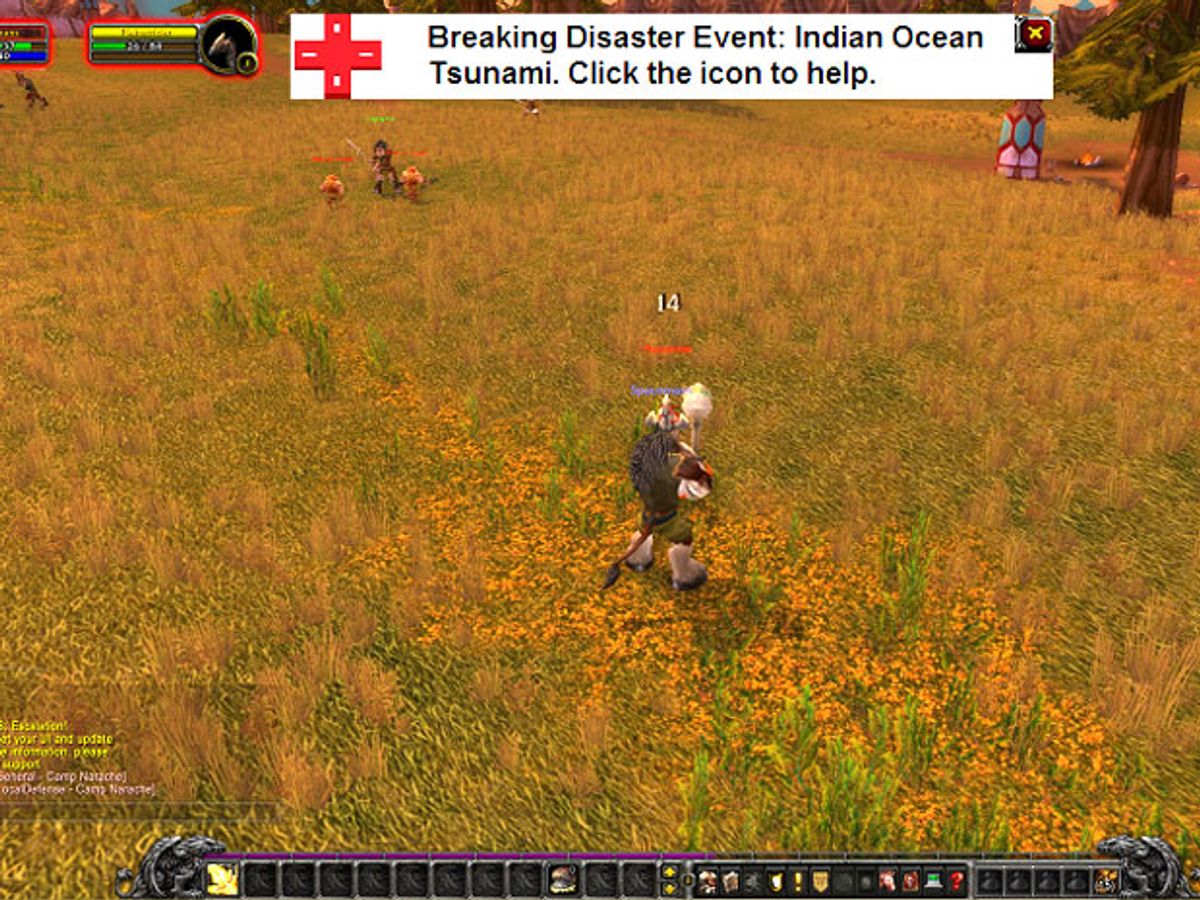"World of Warcraft" players could someday help disaster response efforts by tagging real-life images of a flooded town or exploring a virtual recreation of an earthquake-stricken city to find damaged areas. That's the vision of a new crowdsourcing project that aims to allow online gamers to help out in real life without ever logging out of their favorite games.
The Internet Response League (IRL) is the brainchild of Patrick Meier, director of innovation at the Qatar Computing Research Institute, and Peter Mosur, a graduate student at Metropolitan College of New York studying emergency management. They hope to recruit gamers to sift through millions of disaster-related images and messages shared on social networks by enlisting their help directly within popular online games such as "World of Warcraft" (7.7 million players), according to New Scientist.
Meier and Mosur envision alerts popping up within popular online games that give gamers the chance to help out with responses to disasters such as the 2004 Indian Ocean Tsunami, the 2010 Haiti Earthquake, Japan's March 2011 earthquake and tsunami, or Hurricane Sandy's devastation of New York City and surrounding areas in 2012. If players click on the invite, they would launch a "disaster tagging area" mini-game within the larger game that asks them to tag real-life disaster images according to the severity of damage.
The IRL co-founders hope to make a standard Web plugin that allows game developers to easily insert the IRL system into their games. IRL would push disaster images to gamers through the plugin, receive the tagging feedback, and even track individual player progress so that they could recognize gamers with unique game rewards. Player feedback would presumably help emergency response planners update a live crisis map of a stricken real-life area.
Such a crowdsourcing strategy aimed at the existing player bases of popular games could have a big advantage over trying to attract people to play original disaster response games—as long as IRL can convince big game developers to include their plugin.
IRL could even customize the disaster-response tasks for each individual game's story and gameplay style. "World of Warcraft" players might end up questing in the virtually-recreated version of a real-life city, whereas the arena-style combat game "League of Legends" (32 million players) might simply rely on the image-tagging system and entice players with the reward of in-game money.
Photo: Internet Response League/Blizzard
Jeremy Hsu has been working as a science and technology journalist in New York City since 2008. He has written on subjects as diverse as supercomputing and wearable electronics for IEEE Spectrum. When he’s not trying to wrap his head around the latest quantum computing news for Spectrum, he also contributes to a variety of publications such as Scientific American, Discover, Popular Science, and others. He is a graduate of New York University’s Science, Health & Environmental Reporting Program.



